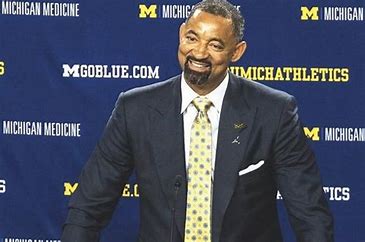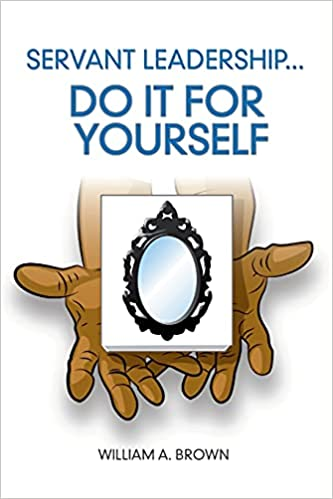Article-Detail

The Rule of Reciprocity is Shockingly Strong
Chicago, IL native, Juwan Howard, is one of the all-time great basketball players from the University of Michigan. The first of what would be known internationally as the Fab 5 Freshman basketball recruits for the Wolverines in 1991. He was critical in the recruitment of the other four freshmen, Chris Webber, Jalen Rose, Jimmy King, and Ray Jackson. They would go on to become the first all-freshman starting lineup in college basketball history, would make the tournament championship game in 1992 and 1993 and be the biggest ticket the NCAA had seen before or since. During the recruiting process, Michigan coach Steve Fisher and Brian Dutcher established a relationship with Juwan’s grandmother who was raising him, often sitting down to big soul food dinners. Juwan’s biological parents hadn’t spent much time with him growing up so he, his grandmother and two cousins who his grandmother was also raising, were very close. Sadly, in his senior season, Juwan’s grandmother, passed away. Coach Fisher, and Dutcher made supporting Juwan a priority, even showing up for her funeral, and as a result, Juwan’s bond tightened with the coach. This influenced Juwan’s decision to commit to Michigan and help recruit the four others who would, as he says, “shock the world”.
The back and forth demonstrated in the relationship between Juwan, his grandmother and the coaches from the University of Michigan demonstrates the Rule of Reciprocity. Rule of Reciprocity is a social psychological term that says people will respond to a positive action with another positive action, essentially the reciprocal act is a reward for kind actions. Juwan was close to his grandmother, the coach’s kindness to her was seen and appreciated by Juwan. Other coaches, such as Lute Olsen, ignored his grandmother and universities such as the University of Arizona were eliminated by Juwan. Calling Juwan, asking about his grandmother and coming to see him practice was seen as a genuine commitment to him and not a sales job to get a hot recruit. Social psychologist say that the human mind sees these types of acts as ‘gifts’ and there is a psychological need to reciprocate.
Psychologists identify reciprocity as a strong determining factor of human behavior and a powerful method of gaining compliance with a request, even when the favor is uninvited or even if you dislike the person executing the favor. In 1976, Psychologist Phillip Kunz demonstrated the automatic nature of reciprocity in an experiment using Christmas cards. In his experiment, Kunz sent out holiday cards with pictures of his family and a brief note to a group of complete strangers. He expected some reaction, but what he got was more holiday cards returned than he sent, some even from people who he had never met or heard of. His kindness multiplied then returned to him. The opposite is also true in that the response to hostile actions are responded to with nastier and even brutal acts. There are old sayings such as, ‘you reap what you sow’ that demonstrates the rule of reciprocity.
A friend of mine with an old soul likes the expression, ‘You win more friends with honey than you do with vinegar, so always use the honey’. The ‘friendship’ is the reciprocation you get for your ‘honey’ or kindness to others. In leadership and business the rules are exactly the same, you get what you put out. If you are generous, kind, and supportive, your behavior will be seen by those around you as a ‘gift’ that must be reciprocated. The strength of this drive to reciprocate is demonstrated by research that it doesn’t matter if you know or even like the person, the gift must be repaid. At work, kindness can be expressed in fairness, consistency, and predictability. Unfairness, inconsistency and unpredictability is seen as a negative. It causes stress and unpredictability in those impacted by your behavior and the behavior you get in return will harm your organization and even the leader. Reciprocity can be seen in any number of workplace activity such as negotiations, conflict management and daily interactions, positive reciprocity makes all of these interactions much easier. If you are kind and patient during simple and complex interactions at work, your conduct will be reciprocated by those who are the targets of your kindness, those who witness your kindness and even those who hear about your kindness. This rule is that powerful.
Many companies try to institute behaviors that cultivate reciprocity such as employee loyalty and pride programs. While the intent is good, it can’t be legislated, it has to be authentic. Conduct that is done out of obligation is not seen as a gift and is not reciprocated. This is demonstrated by Juwan Howard eliminating the University of Arizona from his list of schools because of a lack of genuine interest in him. Companies who are after repeat customers hire people who come with qualities of positivity and kindness because they know how contagious they are. These qualities spread among employees and customers alike and, employees stay, and customers come back for it. The Rule of Reciprocity is universal and, according to social psychologists, only the very young, the sick or the old don’t seem to follow closely to it. It works, it does not cost anything and is simple enough anyone can do it. Because of the influence carried by leaders, the positivity must start at the top. If you are at the top of your organization or if you lead a small corner of the company, the Rule of Reciprocity works equally effective. If you one day hope to “shock the world”, the rule of reciprocity must be a part of your plan. On May 22, 2019, Juwan Howard was named the Head Basketball Coach at the University of Michigan, he’s still reciprocating. Do it and your team and organization will SOAR!
William A. Brown
July 14, 2019
http://soarsuccessfully.com/articles.php
https://en.wikipedia.org/wiki/Juwan_Howard#Personal_life




